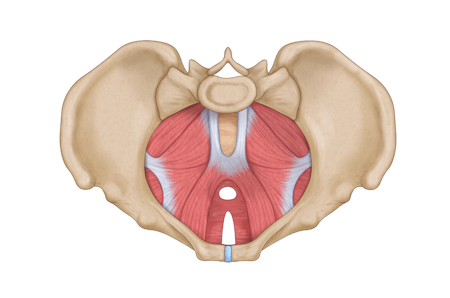PainPregnancyPostpartumPainful Sex
Painful sex, medically defined as dyspareunia, can be experienced during penetration, thrusting, after sex, or all of the above. This pain is experienced differently by each individual. It can feel like cramping, a tearing or ripping sensation, sharp, stinging, achy, throbbing, or burning.
Maybe for some of you, sex has always been painful. For others, you may have enjoyed intercourse but things changed once you had a baby, or after going through menopause. No matter your situation, I need you to understand and BELIEVE these four truths:
- It is NOT your fault
- There is a medical reason for your pain. You are not crazy, and it is NOT in your head.
- Pelvic floor physiotherapy can help and often fix your pain (There is an abundance of high- quality research to support this)
- You are not alone.
Pain with sex is very common…..let’s look at the statistics:
- 25-40% of postmenopausal women find sex painful
- 1 in 5 women will experience painful sex at some time in their life
- 58% of women at 3 months post partum experience pain with sex
- 24% of women still have dyspareunia (painful sex) at 18 months post-partum
- Women who have a C-section are 2x more likely than women who deliver vaginally to experience painful sex at 18 months post-partum.
Despite how common this condition is, it is heartbreaking to hear the women I treat iterate the same sentiments; they feel alone and ashamed. Most are astounded to find out that many others, like themselves, suffer from painful sex. They are relieved to know the majority are successful in achieving a pleasurable, pain free sex life again with a few pelvic floor physiotherapy treatments.
Sex is a huge part of an intimate relationship. When sex hurts, it can create feelings of frustration and fear for both partners. It is difficult and often impossible to enjoy sex when it hurts. The pain lowers your libido and your desire to have sex fizzles. The pain replaces pleasure. Both partners may then start to feel inadequate, disconnected, and rejected.
What causes the pain?
This pain is often widely misunderstood in the healthcare field despite an abundance of research identifying the following contributors to painful sex:
- Spasms, tight, or overactive pelvic floor muscles
- Scar tissue
- Trigger points or knots in the pelvic floor
- Menopause
- Infections/diseases
- Sensitivities to ingredients in lubricants or condoms
- Hormonal changes/imbalances
- Connective tissue dysfunction
- Episiotomy scars
- Sensitized nervous system
- Decreased natural lubrication
- Side effect from radiation
- Nerve irritation or compression
- Trauma
Everything appears to be normal, so why does it hurt so much?
Perhaps you are among the 39% of individuals who sought help for your pain but were never given a diagnosis after consulting specialists and numerous medical professionals. On average, individuals see 7 healthcare professionals before trying or being referred to pelvic floor physiotherapy. Medical tests come back negative; everything appears to be normal. These individuals have been told so many times by loved ones and specialists that there is no reason for their pain, suggesting it is all in their head. “Relax, lighten up, have some wine before having sex, that will help.” How many of you have experienced sharp, stabbing pains in your back when lifting something heavy? Would it be appropriate to advise you to relax a little, drink some wine and then resume heavy lifting? NO! That would be ludicrous. The same goes for sex. Drinking wine won’t solve the issue, nor is that “advice” ever helpful, ethical, or appropriate.
It is not uncommon for postpartum sex to feel different or uncomfortable the first couple of times. However, if the pain persists or intensifies, book in for a consult for pelvic floor physiotherapy. Women often tell me that they were sewn up too tight after delivery. In rare cases this may be true, but often difficulty or the inability to achieve penetration is due to tight pelvic floor muscles around the opening of the vagina. Out of a protective response, these muscles attempt to close the entrance to the vagina. The first time you resume sex postpartum, your pelvic floor muscles may tighten up in anticipation of pain.
If sex has been painful for a while, the brain remembers that intercourse causes you pain. With each attempt the brain pre-programs your pelvic floor muscles to tighten up, closing off the opening of the vagina. The brain tries to protect you. If the tight muscles can keep things from entering the vagina, then no pain can be felt. If this strategy is successful, then the brain will continue to implement it with every attempt at sex.
Can pelvic floor physiotherapy REALLY help?
With a few pelvic floor physiotherapy treatments to desensitize the painful areas, and some stretches to release tension in the muscles, your pain will gradually go away. Your physiotherapist will take the time to identify and help you understand what specifically is causing your pain. They will cater your individualized treatment and home exercises to help alleviate the specific type of pain that you are experiencing. Once you prove to the brain that sex is a safe and desired activity, it will stop perceiving intercourse as a threat and will no longer deploy protective spasms in the pelvic floor. Once the pain goes away, penetration occurs easily and intimacy and pleasure returns.
Research suggests 76% of individuals think there is no treatment available for their sexual pain and health problems. If this is you, despite what you may believe or have been told in the past, you may be able to improve or resolve the pain you experience with sex. Pelvic floor physiotherapy can help.
©Lynn Sweeney, Physiotherapist
Bsc. Kin, MPT



